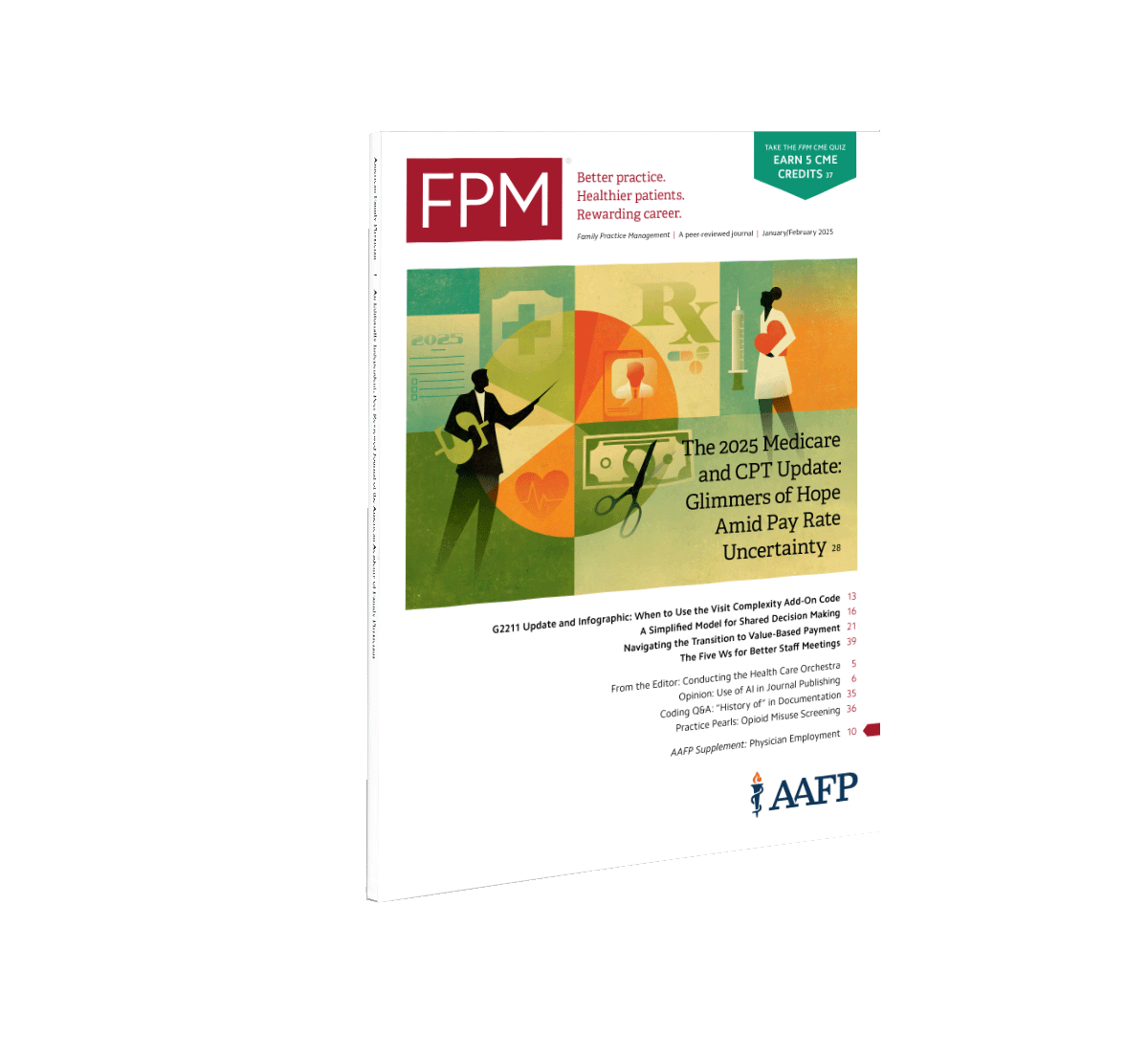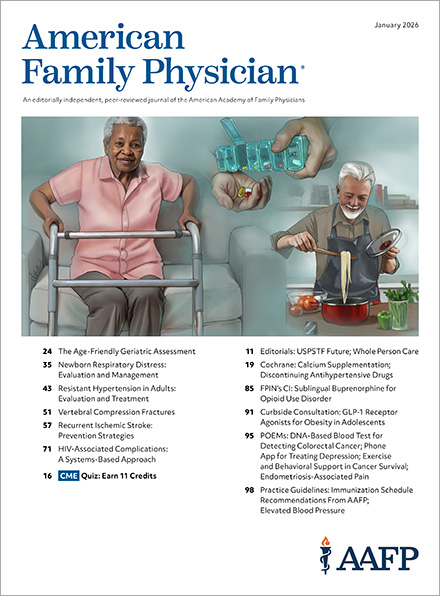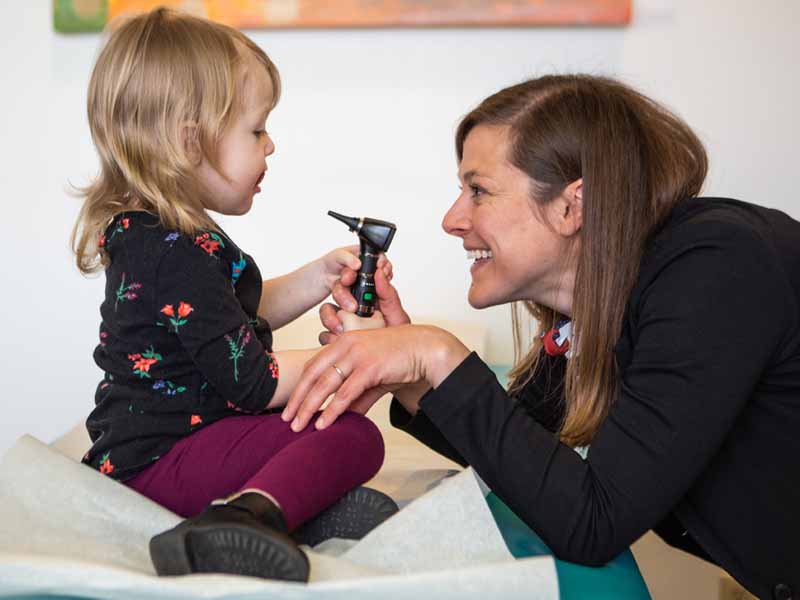More Clinical Resources for New Physicians
Top New Physician Career Resources
Top New Physician Practice Resources
Medical Coding and Billing
Code accurately and get tips to help you optimize documentation.
Administrative Simplification
Take back your time by tackling common pain points in practice.
Business for New Physicians CME
Master fundamentals that can advance your career and practice.
Start Your Own Practice
Get a guide on start-up expenses, budgets and revenue assessment.

FPM Journal
Use the FPM Journal for information and ideas to improve your practice, your patients' experiences and your career.

Team-based Care Operations
Learn how to manage a team and how to work together to optimize patient care.
Connect with Your Peers
When you started residency, having a close network of peers was built into the experience. Leaning on people who are going through the same challenges as you makes a huge difference, and building meaningful relationships is something we want to help you with as you navigate the early years of your career.










